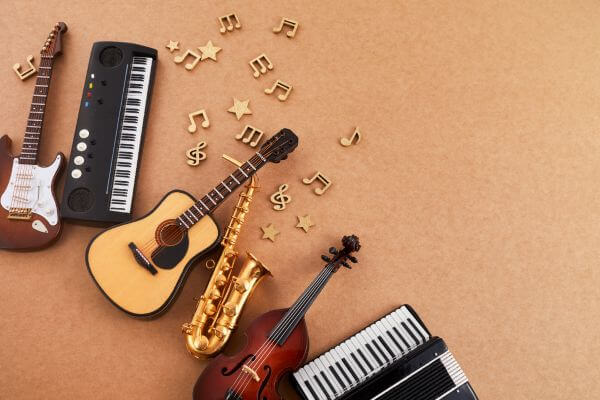What is the meaning of music? This is a question that has intrigued humanity for centuries. Music is much more than a combination of sounds and rhythms; it is a profound form of expression that connects individuals across time and space.
From ancient rituals to modern-day streaming platforms, music has always been a central element of human culture. It transcends words and communicates emotions, ideas, and stories in a way that nothing else can.
Furthermore, the meaning of music is deeply personal, often reflecting individual experiences and cultural contexts. This article explores the various interpretations, roles, and impacts of music in our lives.
The Emotional Language of Music
Music is often referred to as the universal language of emotions. It has the power to express feelings that words cannot capture. For instance, a melancholic piano piece can convey sorrow, while an upbeat dance track can ignite joy and excitement. This emotional resonance is what makes music a vital part of human experience.
Music as a Healer
One of the most profound meanings of music lies in its therapeutic potential. Studies have shown that listening to or playing music can reduce stress, improve mood, and even alleviate pain. Moreover, music therapy has become a recognized practice for helping individuals cope with mental health challenges and emotional trauma.
Music and Memory
In addition, music has a strong connection to memory. Hearing a particular song can transport someone back to a specific moment in their life, evoking vivid recollections and emotions. This connection highlights how music intertwines with our personal and collective histories.
Music as Cultural Identity
Music is deeply embedded in cultural identity, acting as both a mirror and a shaper of societal values. Different genres and styles emerge from specific cultural and historical contexts, making music a reflection of a community’s traditions and experiences.
Folk Music: The Roots of Tradition
Folk music, for example, carries the stories and values of a community. Furthermore, it often serves as a record of historical events, blending oral traditions with melody to preserve cultural heritage.
Global Influence of Music
Similarly, modern music genres like hip-hop and reggae have transcended their origins to become global phenomena, influencing cultures worldwide. This demonstrates how the meaning of music evolves as it crosses boundaries and adapts to new contexts.
What is the meaning of music in Music and Personal Growth
On a personal level, music plays a crucial role in shaping identity and fostering growth. Many people find solace and inspiration in songs that resonate with their experiences.
Music as a Tool for Reflection
Listening to music can encourage introspection and self-awareness. For instance, lyrics that address universal themes like love, loss, or hope often inspire listeners to reflect on their own lives and emotions.
The Creativity Spark
Moreover, creating music allows individuals to explore their creativity and self-expression. Composing or performing music can be a deeply fulfilling process that nurtures both personal and artistic development.
The Universality of Music
The universal nature of music is one of its most compelling aspects. No matter where you go in the world, music serves as a form of communication that transcends barriers of language and culture.
Music as a Connector
It is a medium through which people from diverse backgrounds can find common ground.
Music and Innovation
Music also serves as a canvas for innovation. From the invention of new instruments to the development of electronic genres, music continues to evolve, showing that its meaning is as dynamic as the societies it represents.
What is the meaning of music in everyday life
Music is woven into the fabric of everyday life, accompanying us in moments of celebration, contemplation, and everything in between. Its omnipresence underscores its importance in human existence.
The Soundtrack of Daily Activities
For example, many people use music to enhance their routines, from energizing workout playlists to calming tracks for relaxation. These daily interactions with music highlight its practical and emotional roles.
Rituals and Celebrations
Similarly, music plays a vital role in rituals and celebrations, marking milestones such as weddings, birthdays, and religious ceremonies. These traditions underscore music’s capacity to bring meaning and joy to life’s special moments.
Concluding on What is the meaning of music
What is the meaning of music? Ultimately, it is as diverse and multifaceted as humanity itself. Music is an emotional language, a cultural identifier, and a source of personal growth. Moreover, it connects us to our past, shapes our present, and inspires our future, serving as both a reflection and a driver of human creativity and experience.
In summary, music is more than just sound—it is a vital element of life that resonates with our deepest emotions, unites us across cultures, and continues to evolve with each new generation. Music’s significance extends beyond mere entertainment; it acts as a bridge between people, fostering empathy and understanding in a world often divided.
Furthermore, its ability to evoke memories, inspire action, and provide solace makes it an integral part of the human experience. Whether through a solitary moment with a favorite song or a collective celebration at a live performance, music reminds us of our shared humanity and the power of expression to shape our lives.

